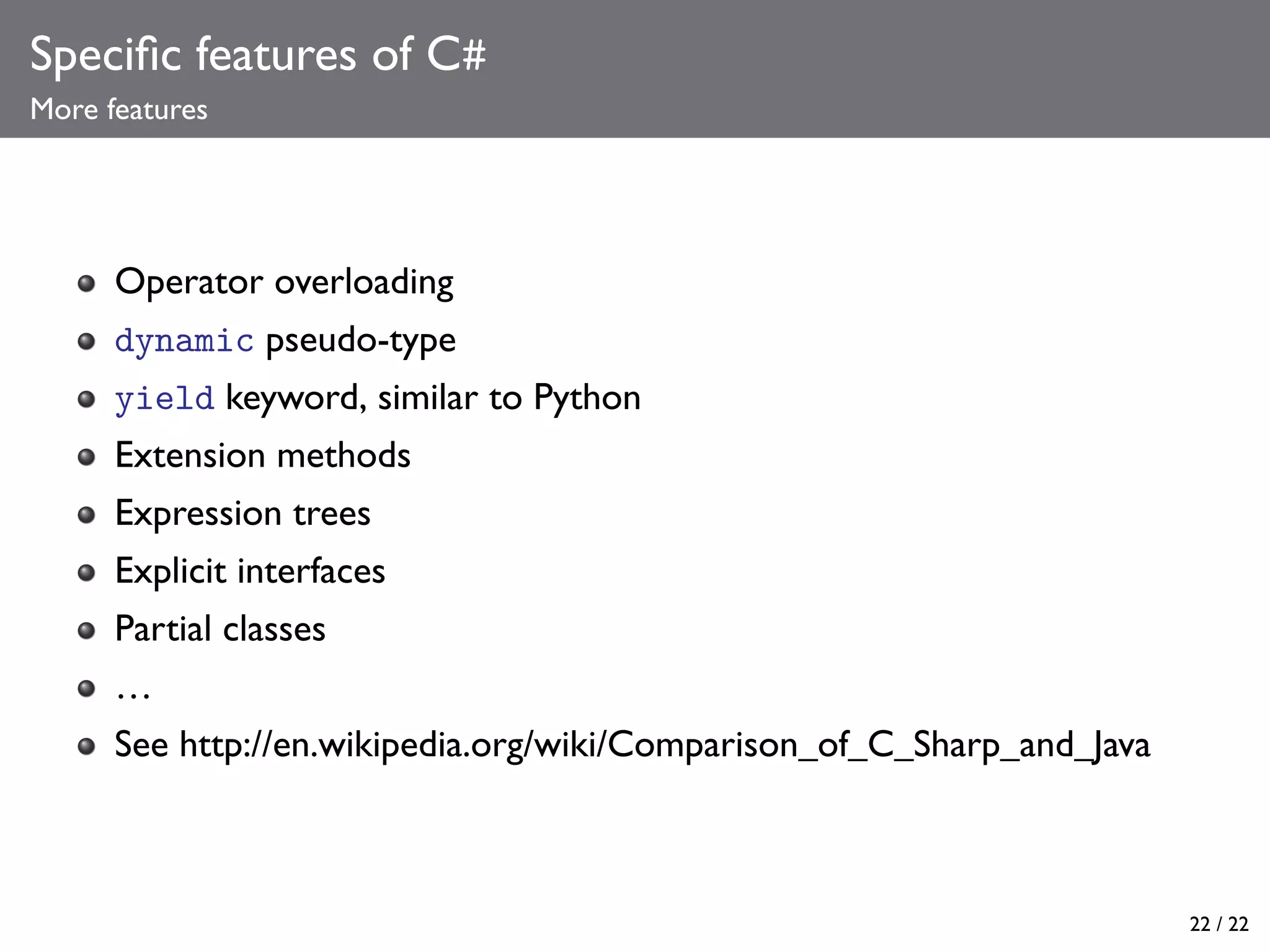This document compares key features of the C# and Java programming languages, including differences in their type systems, generics, keywords, exceptions handling, and specific features like anonymous classes, properties, delegates, and LINQ. It outlines common conventions and pitfalls between the two languages and provides code examples to illustrate differences in generics, constraints, exceptions, and language features like using blocks and lambda expressions.
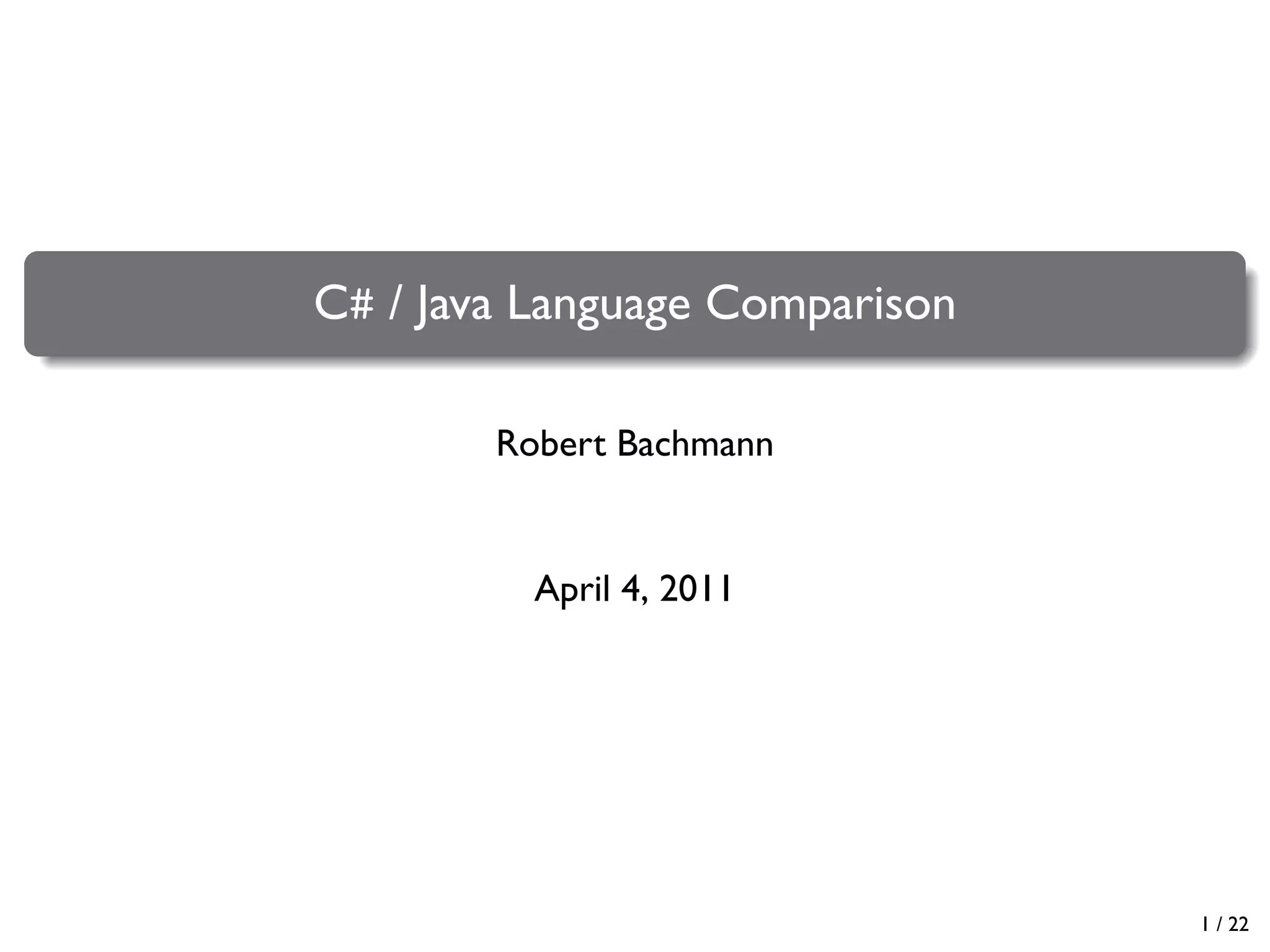
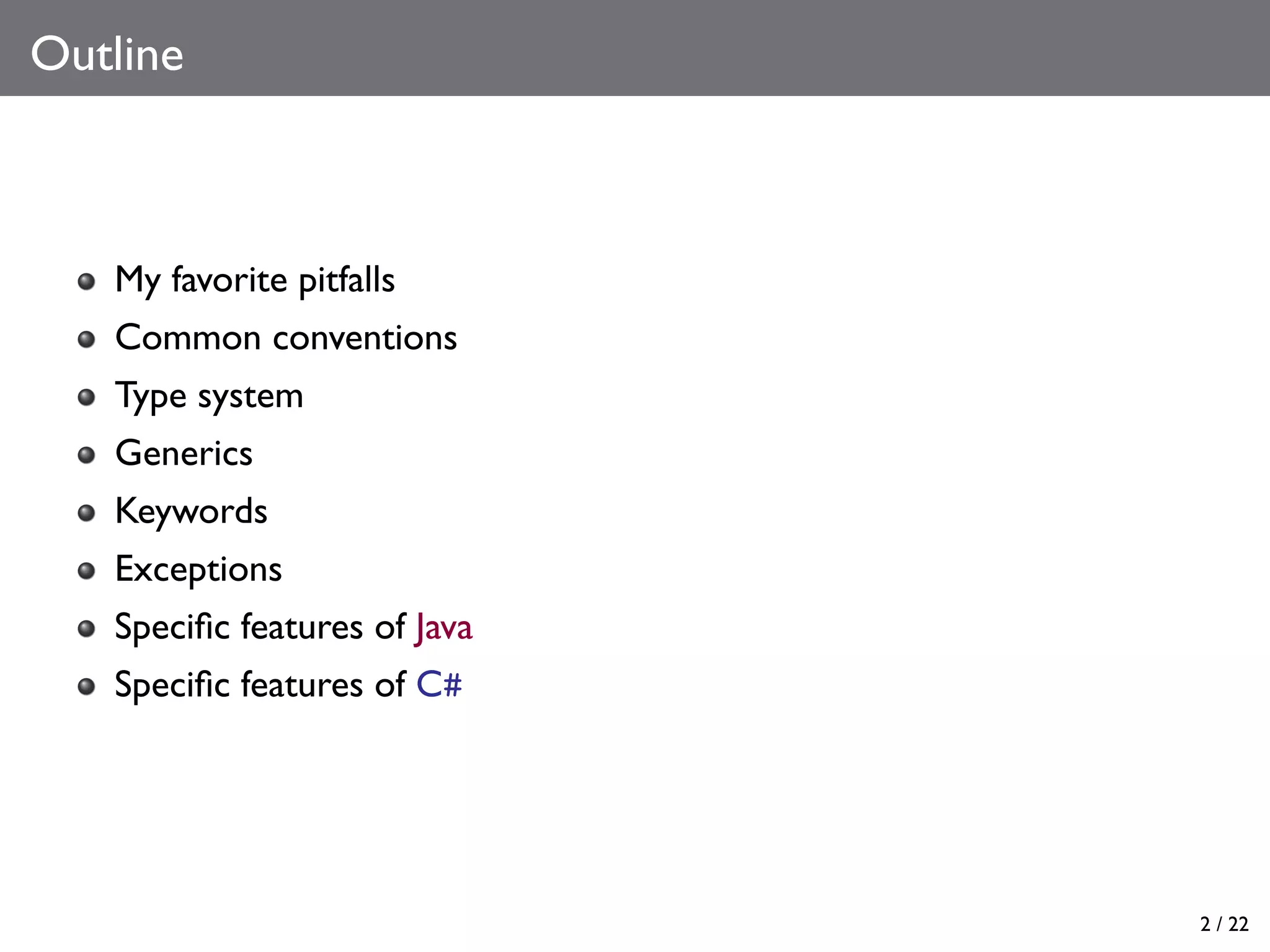
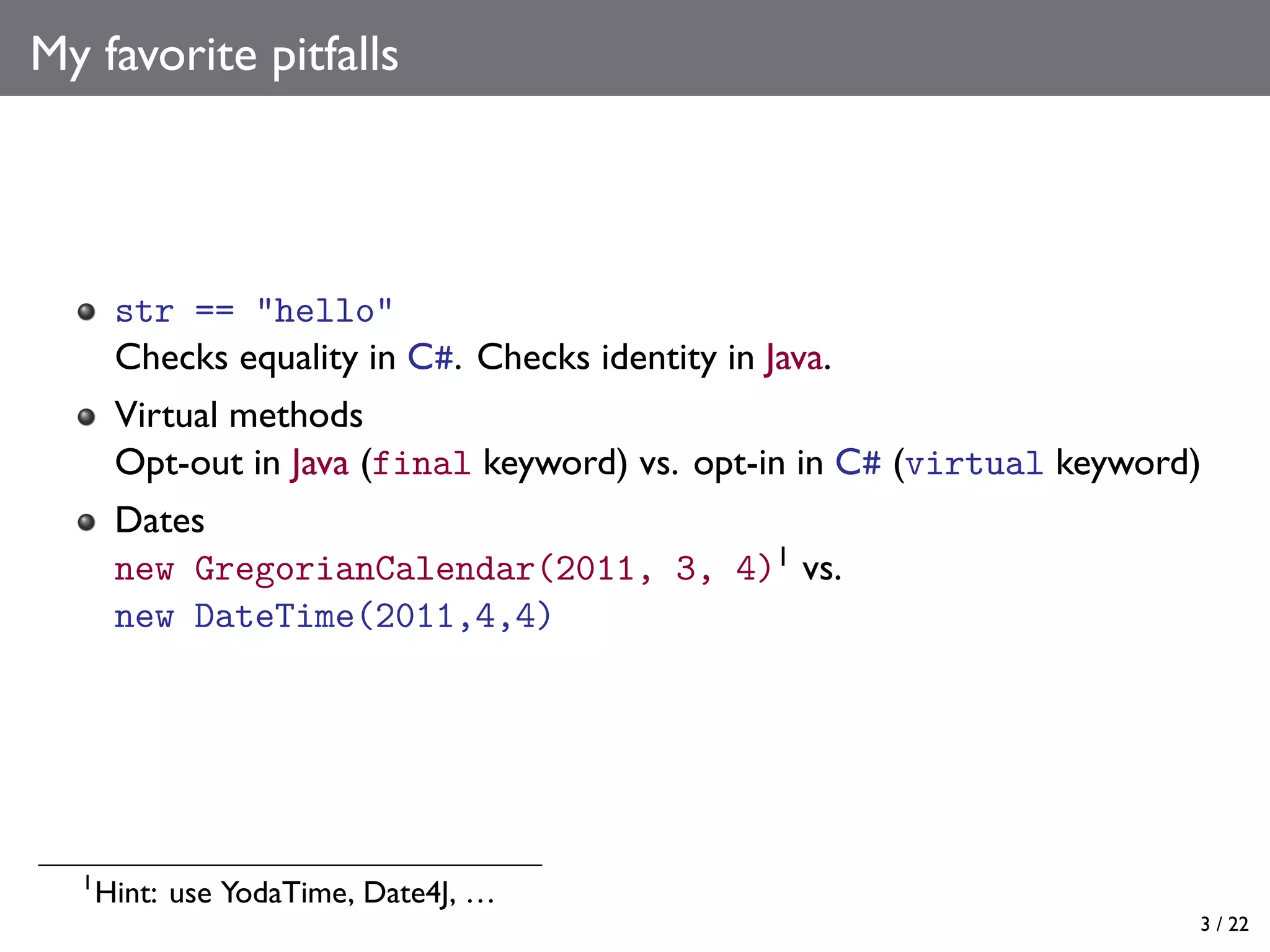
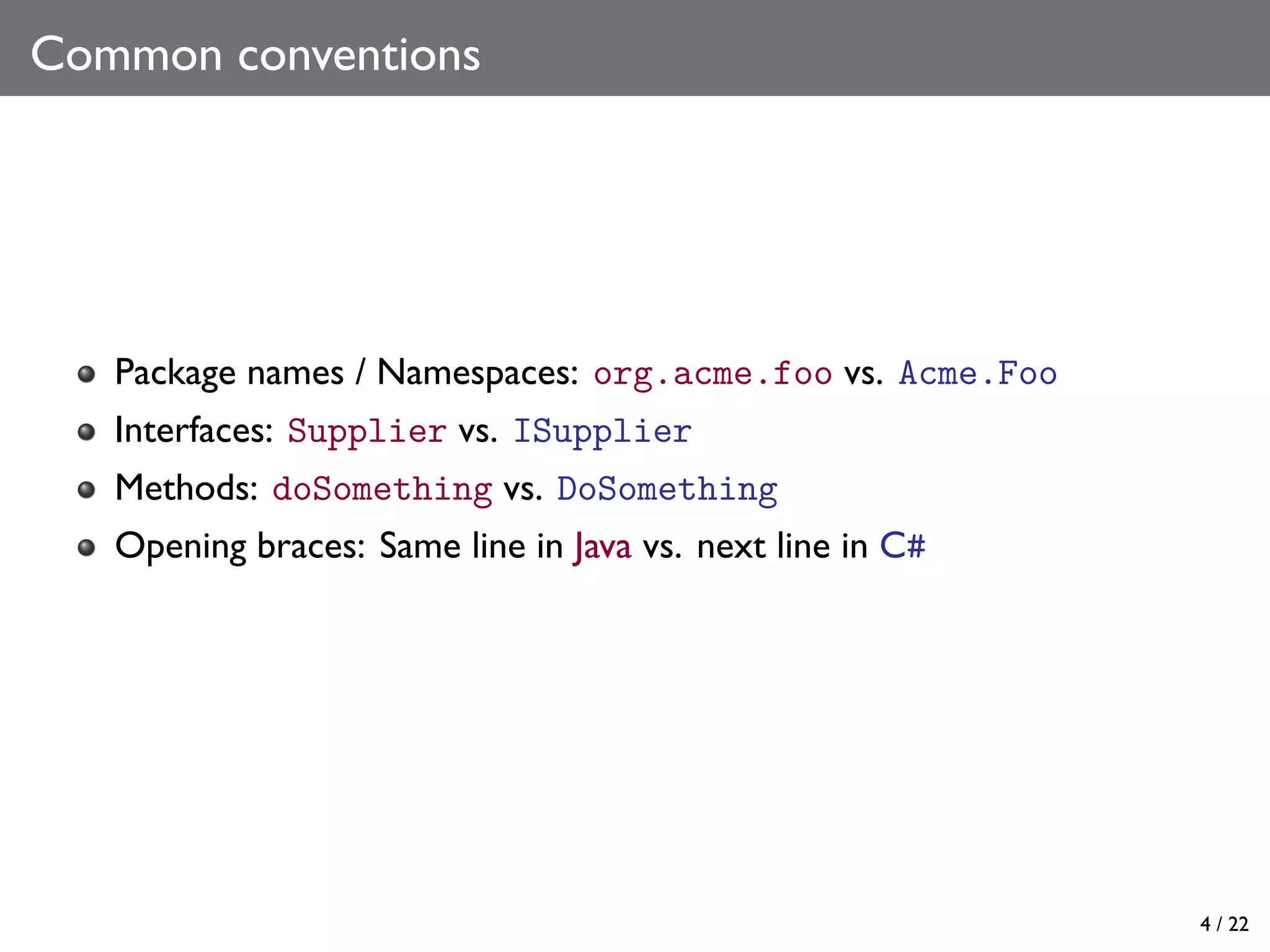
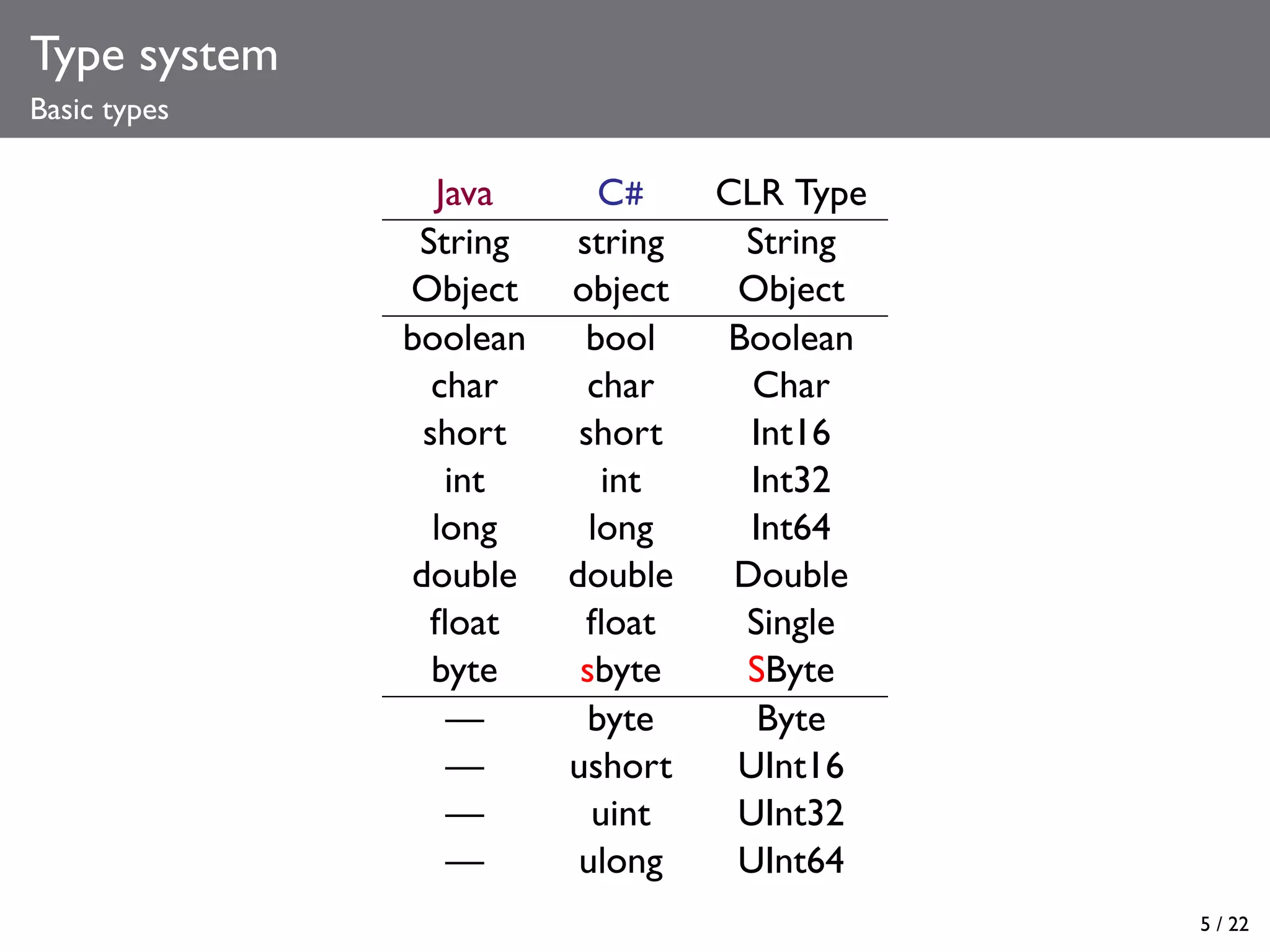
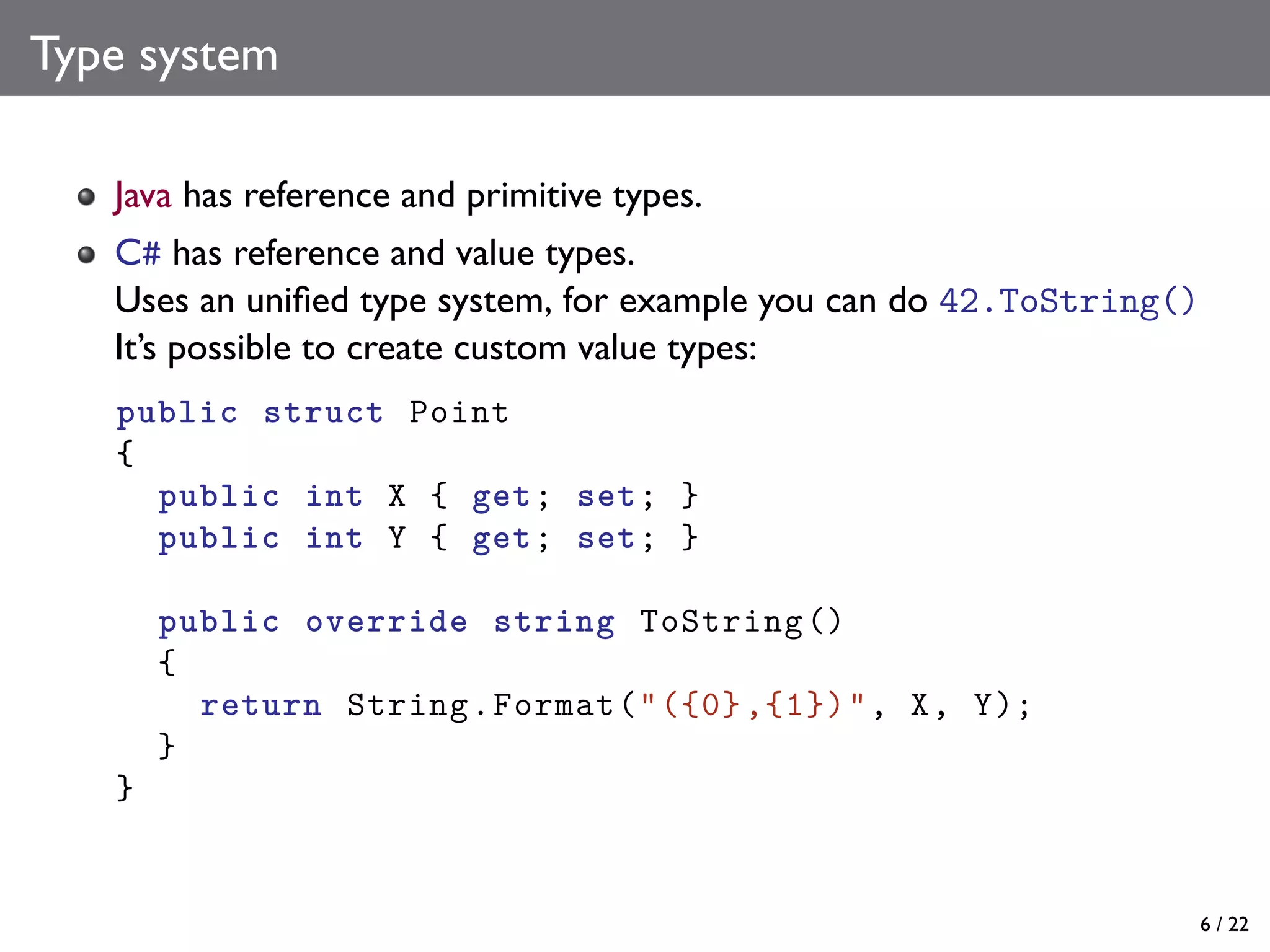
![Generics
Java uses type erasure. Generics are (mostly) a compiler feature.
new ArrayList <Integer >(). getClass ();
// -> ArrayList
new ArrayList <String >(). getClass ();
// -> ArrayList
C# uses rei ed generics. Generics are a runtime feature.
new List <int >(). GetType ();
// -> List `1[ Int32 ]
new List <string >(). GetType ();
// -> List `1[ String ]
7 / 22](https://image.slidesharecdn.com/csharpjava20110404-131117123550-phpapp01/75/C-Java-Language-Comparison-7-2048.jpg)
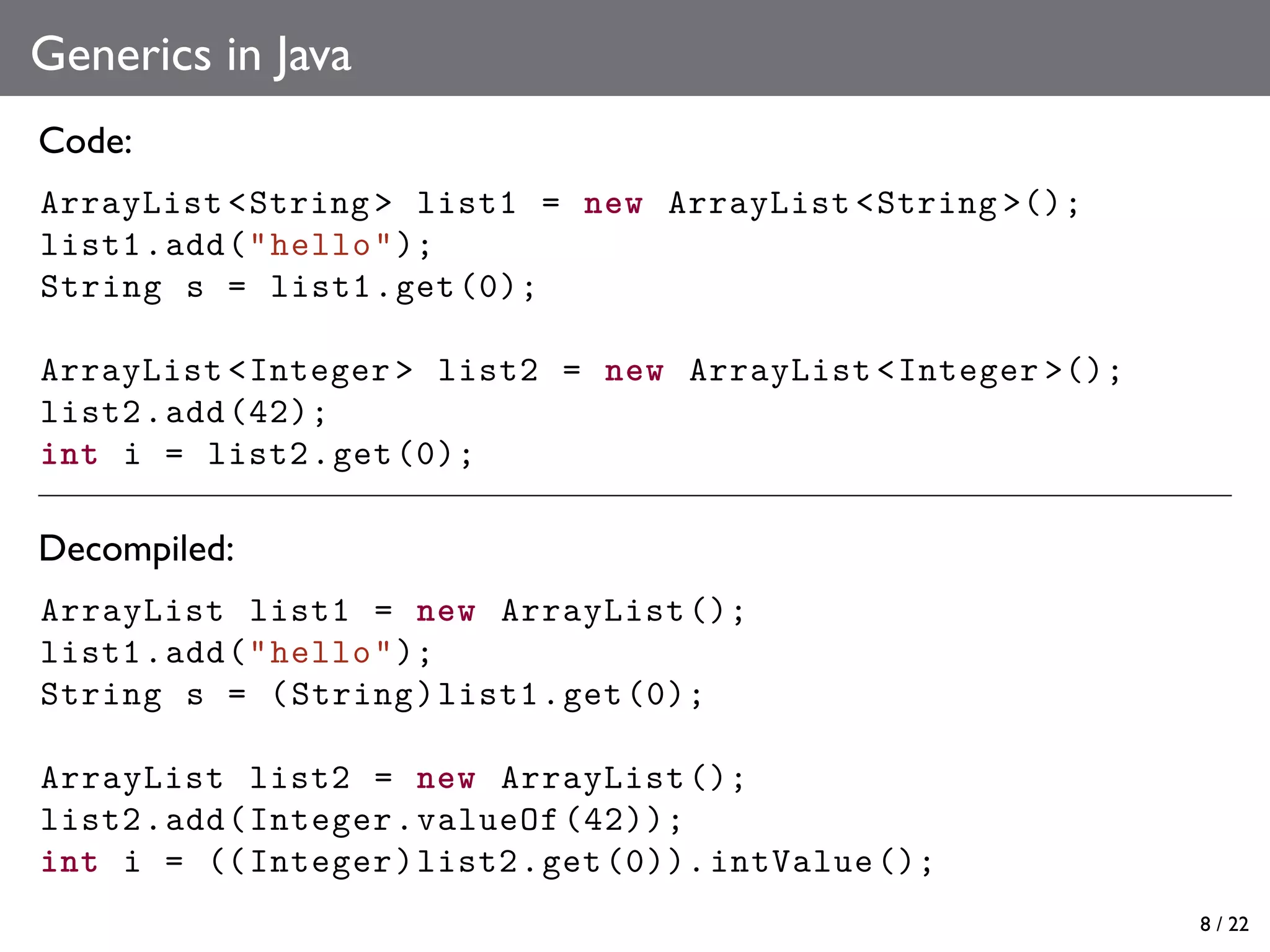
![Generics in C#
Code:
List <string > list1 = new List <string >();
list1 .Add(" hello ");
string s = list1 [0];
List <int > list2 = new List <int >();
list2 .Add (42);
int i = list2 [0];
Decompiled:
List <string > list = new List <string >();
list.Add(" hello ");
string text = list [0];
List <int > list2 = new List <int >();
list2 .Add (42);
int num = list2 [0];
9 / 22](https://image.slidesharecdn.com/csharpjava20110404-131117123550-phpapp01/75/C-Java-Language-Comparison-9-2048.jpg)
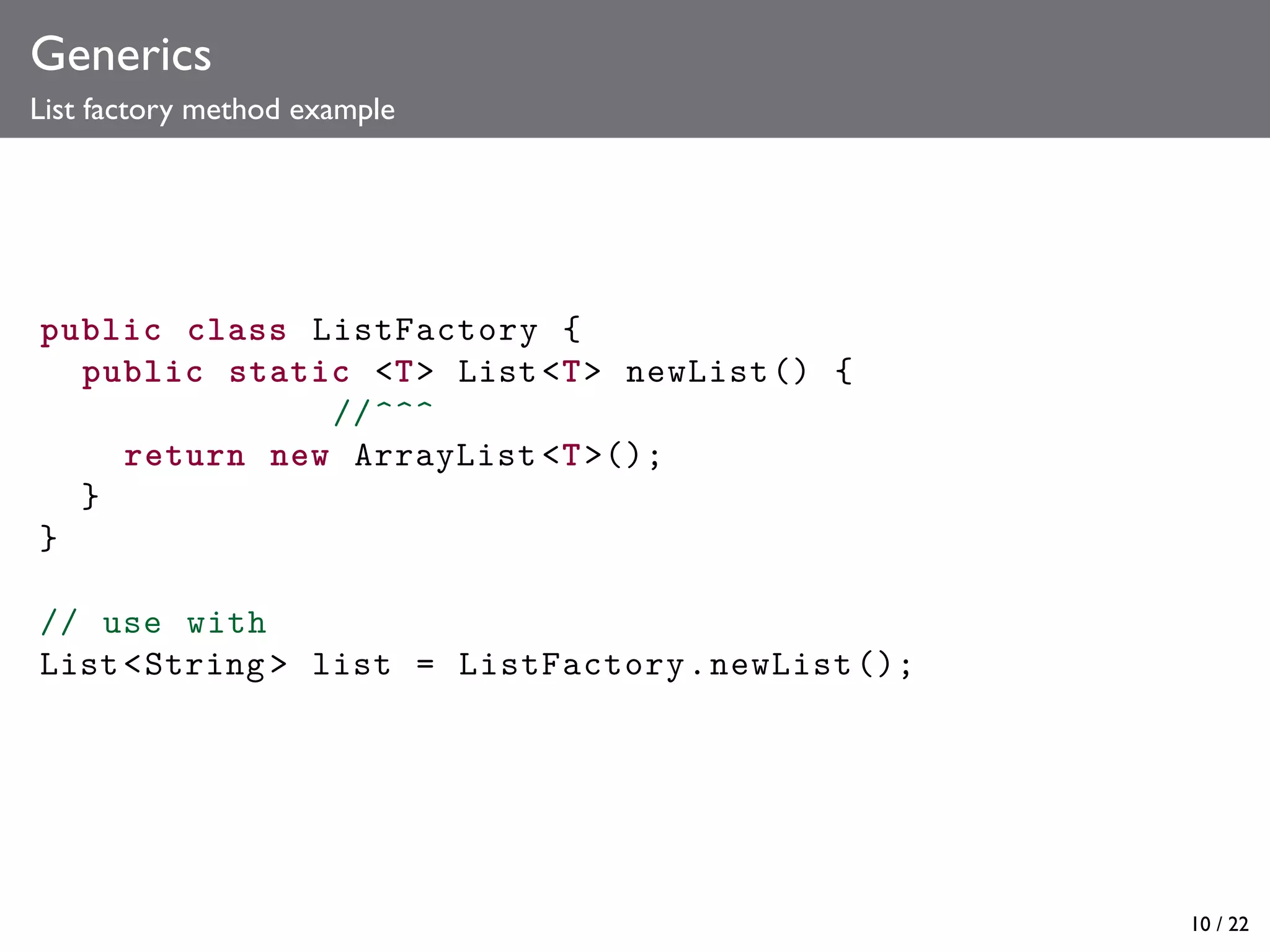
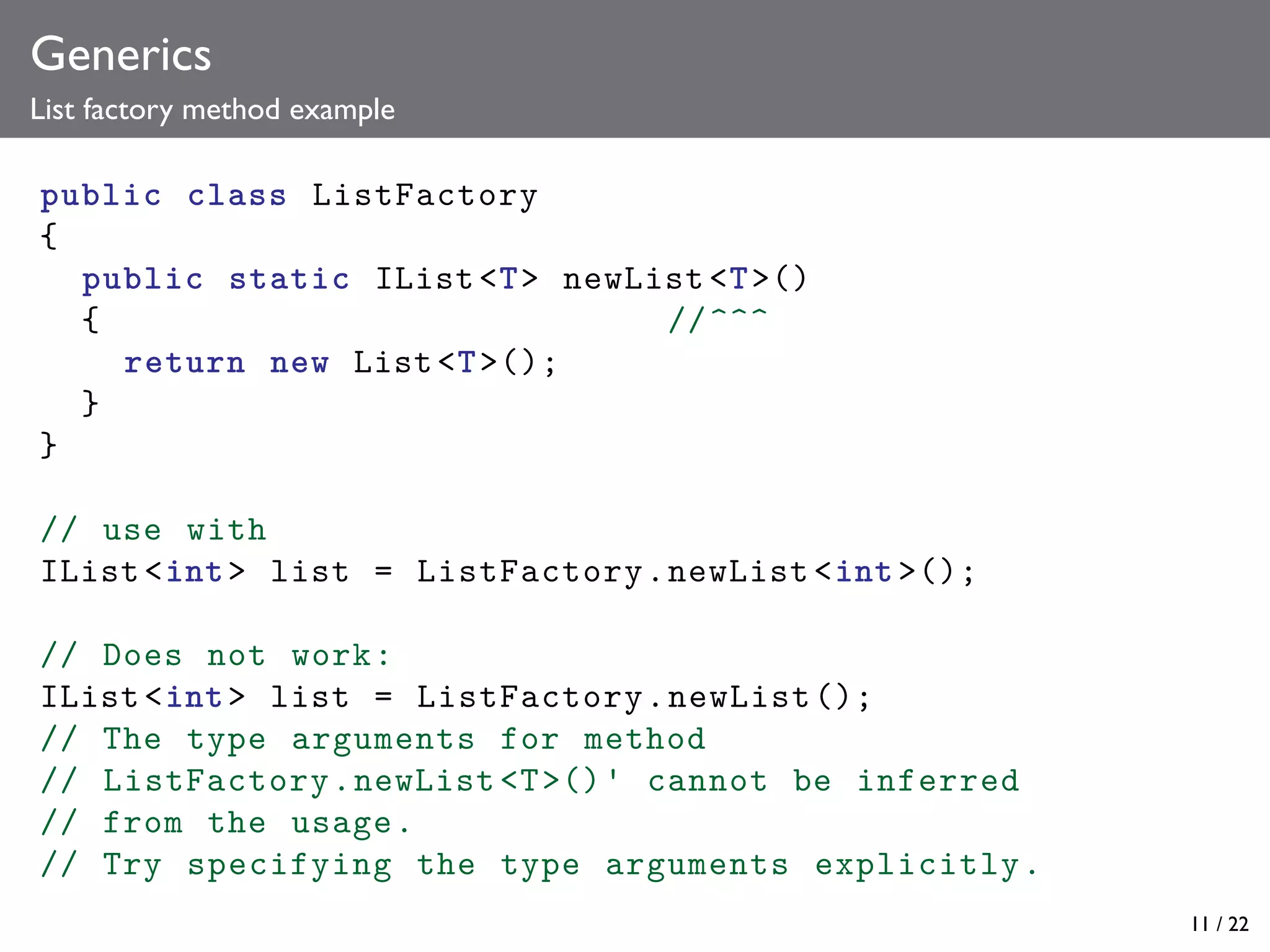
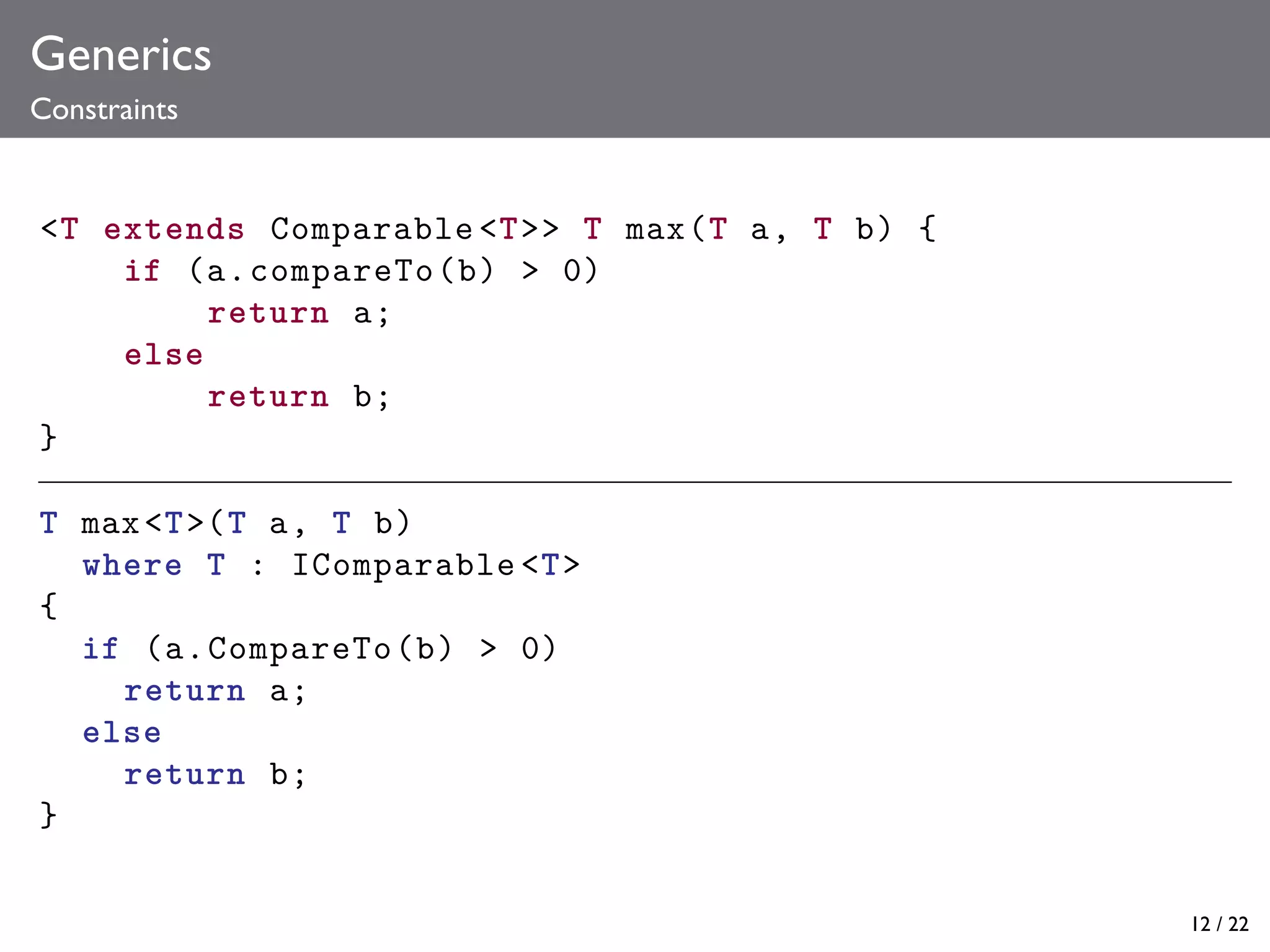
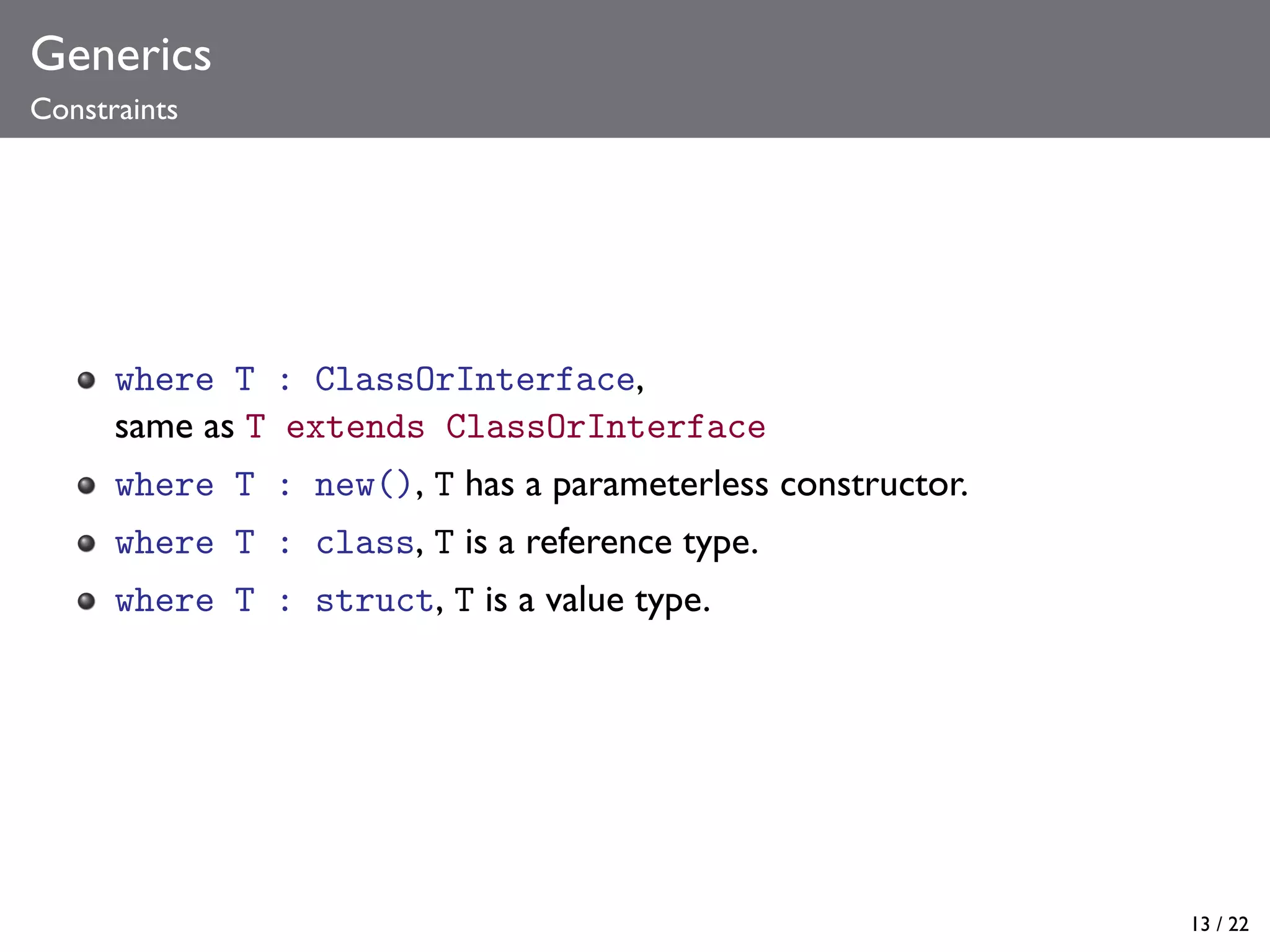
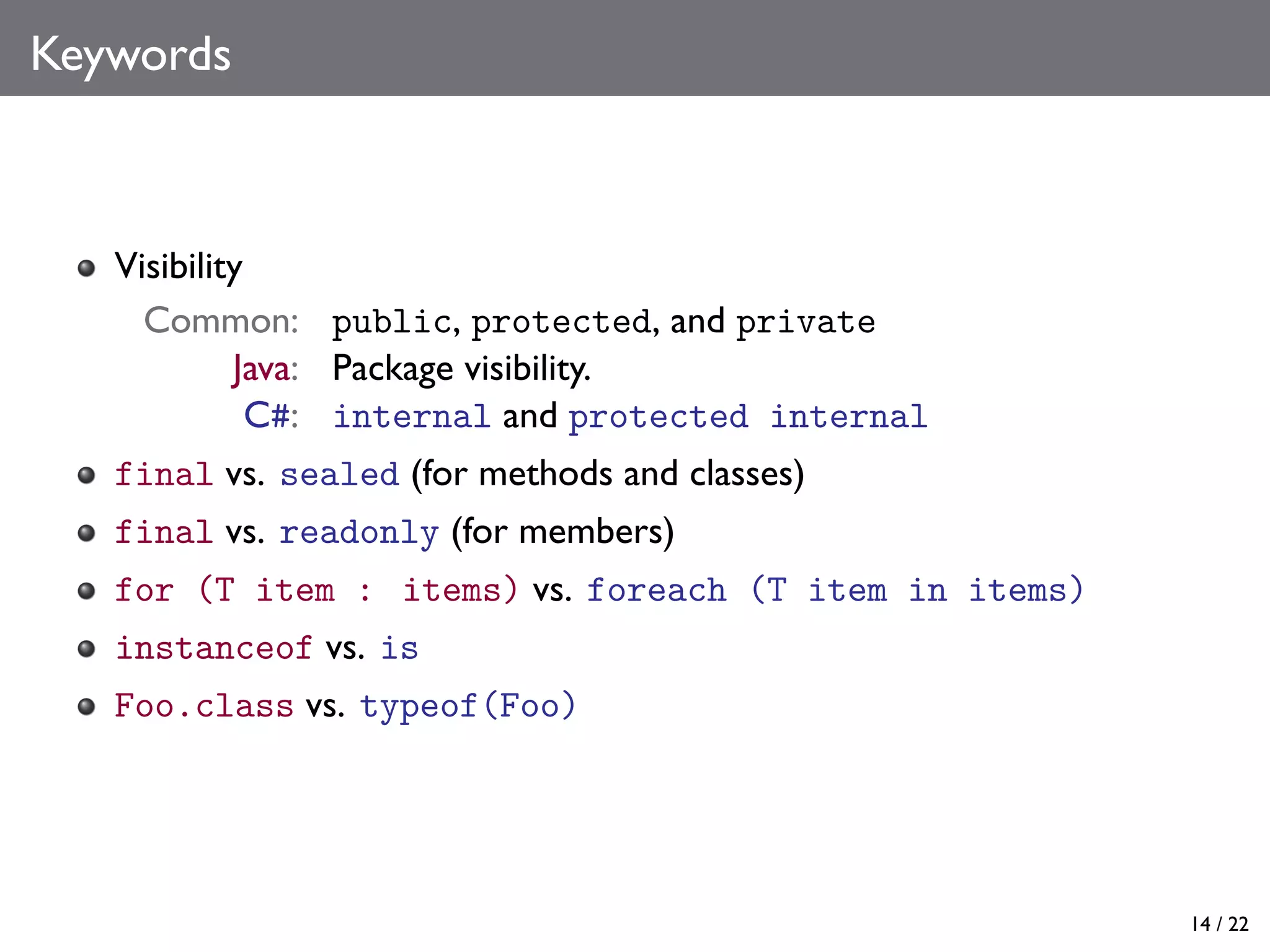
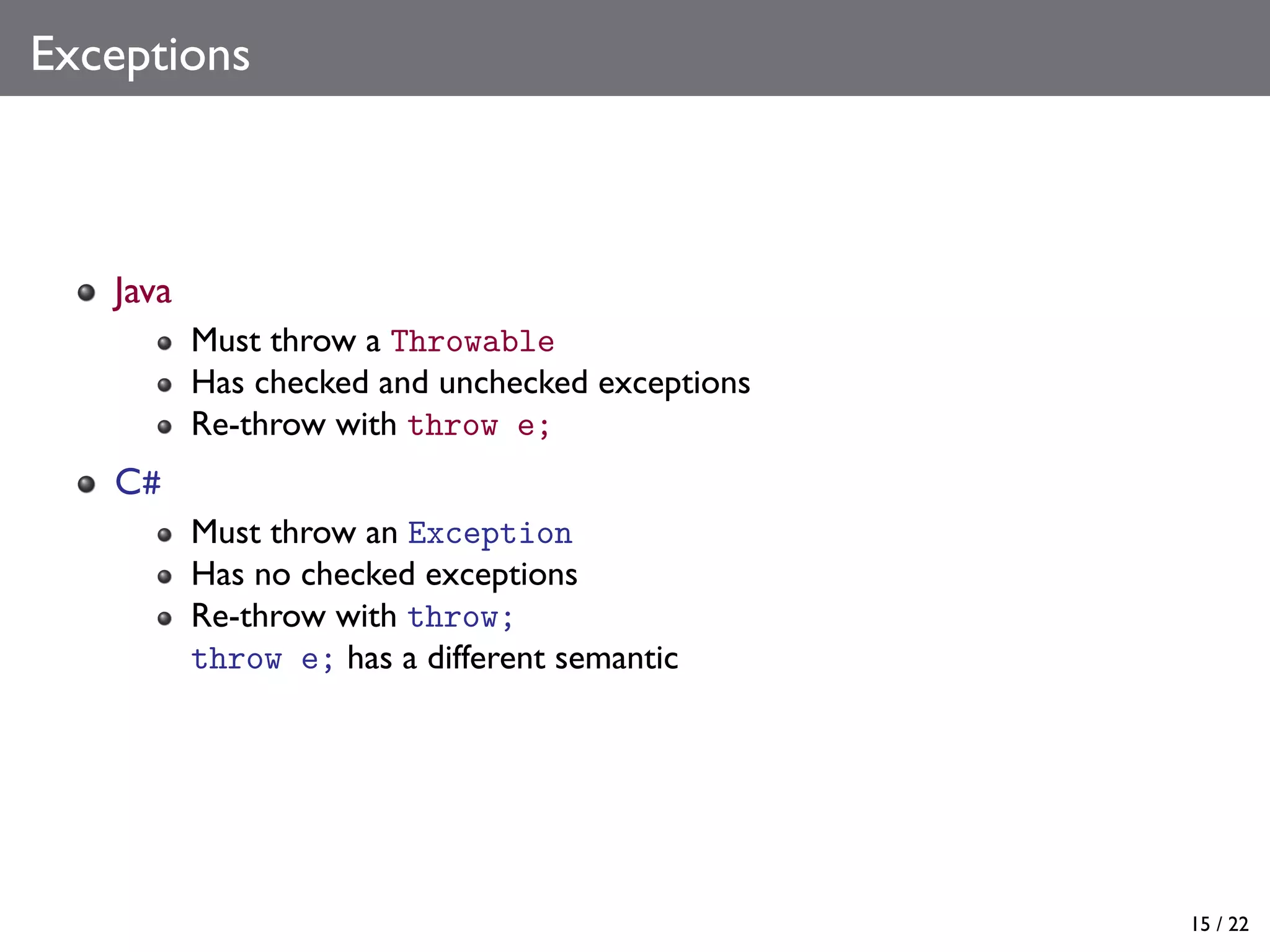
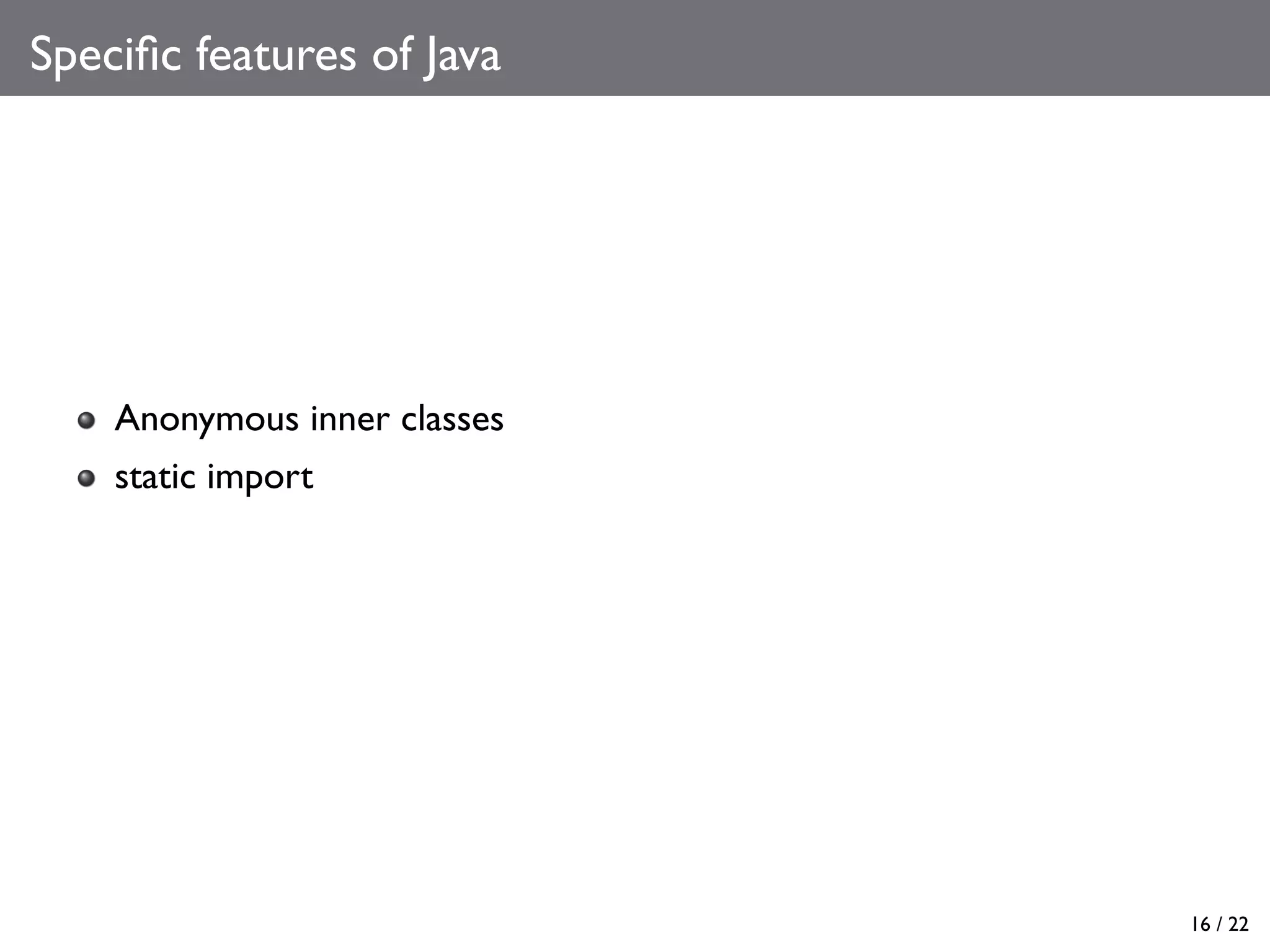
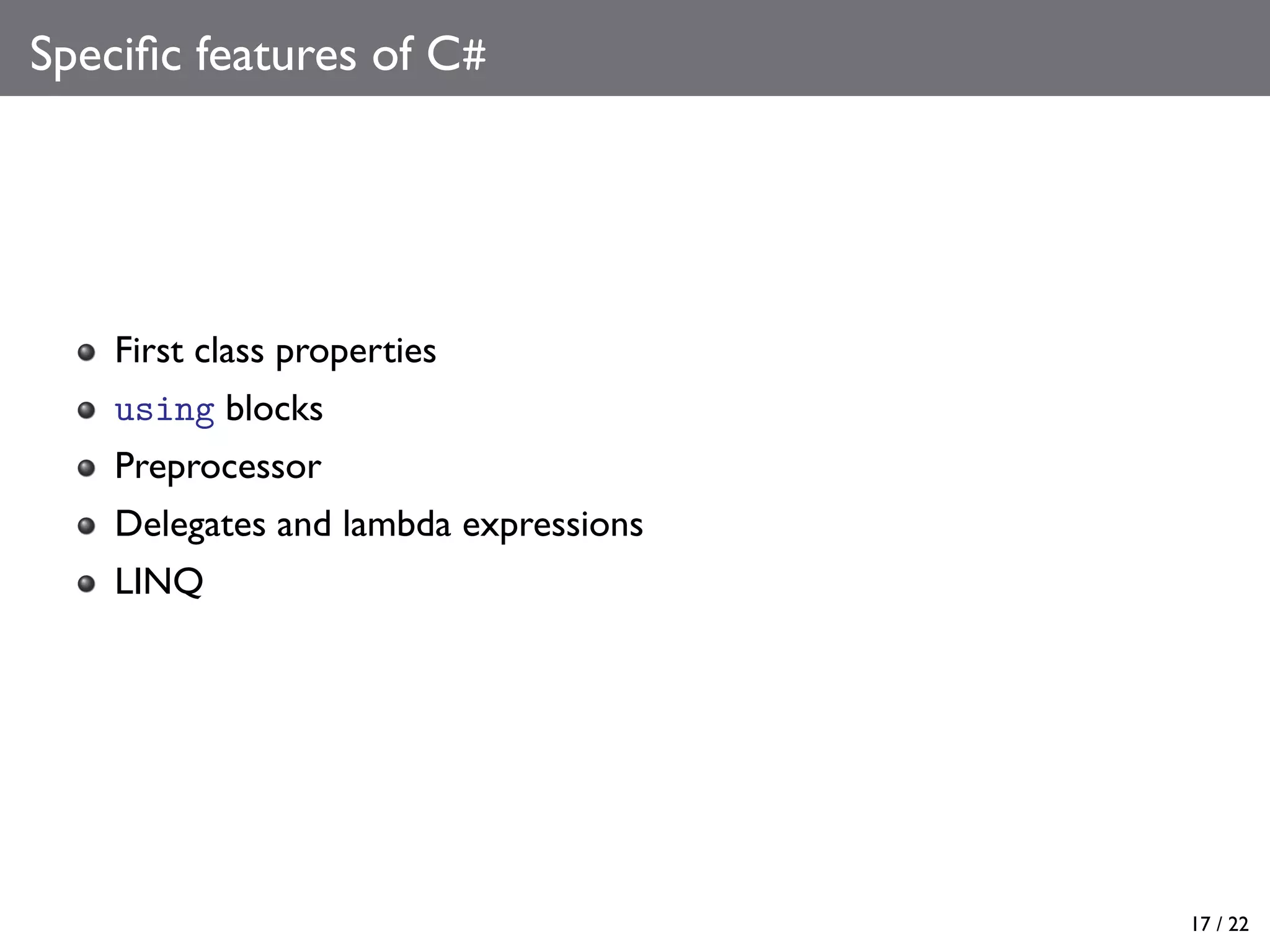
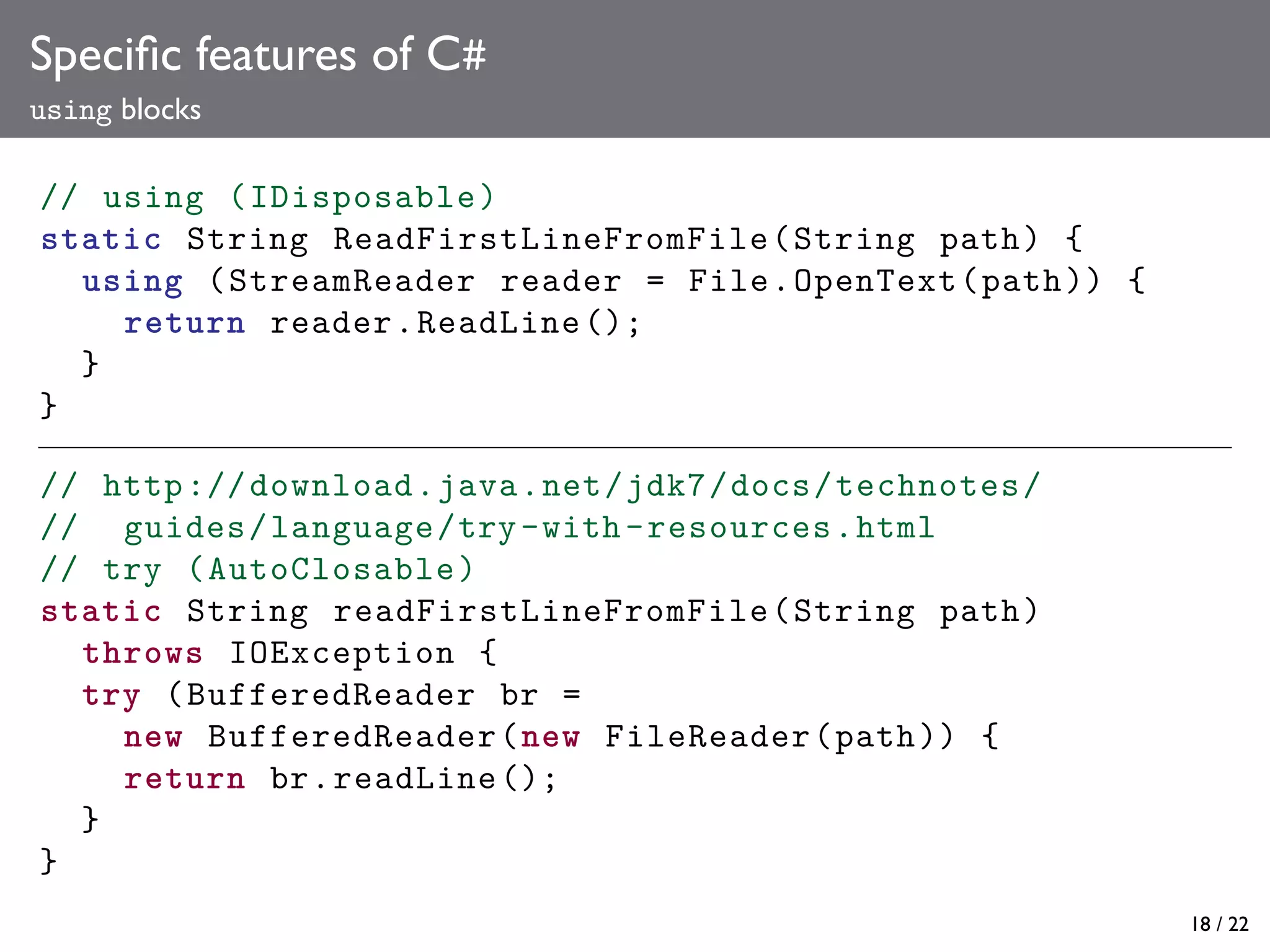
![Speci c features of C#
Preprocessor
public static void Main( string [] args)
{
#if DEBUG
Console . WriteLine (" Debug ␣...");
# endif
Console . WriteLine (" Hello ");
}
19 / 22](https://image.slidesharecdn.com/csharpjava20110404-131117123550-phpapp01/75/C-Java-Language-Comparison-19-2048.jpg)
![Speci c features of C#
Delegates and lambda expressions
public delegate bool Predicate <T>(T obj );
public static void Main( string [] args)
{
List <string > list = new List <string >{
" Hello ", " World ", "what 's", "up"
};
Predicate <String > shortWord ;
shortWord = delegate ( string s) { return s. Length < 4;};
shortWord = s => s. Length < 4;
list.Find( shortWord );
// or just
list.Find(s => s. Length < 4);
}
20 / 22](https://image.slidesharecdn.com/csharpjava20110404-131117123550-phpapp01/75/C-Java-Language-Comparison-20-2048.jpg)
![Speci c features of C#
LINQ
public static void Main( string [] args)
{
var list = new List <string > {
" Hello ", " World ", "what 's", "up"
};
var result = from item in list select item. Length ;
foreach (int i in result ) {
Console . WriteLine (i);
// -> 5, 5, 6, 2
}
}
21 / 22](https://image.slidesharecdn.com/csharpjava20110404-131117123550-phpapp01/75/C-Java-Language-Comparison-21-2048.jpg)
